At MIT’s new computing college, a robot does backflips to celebrate
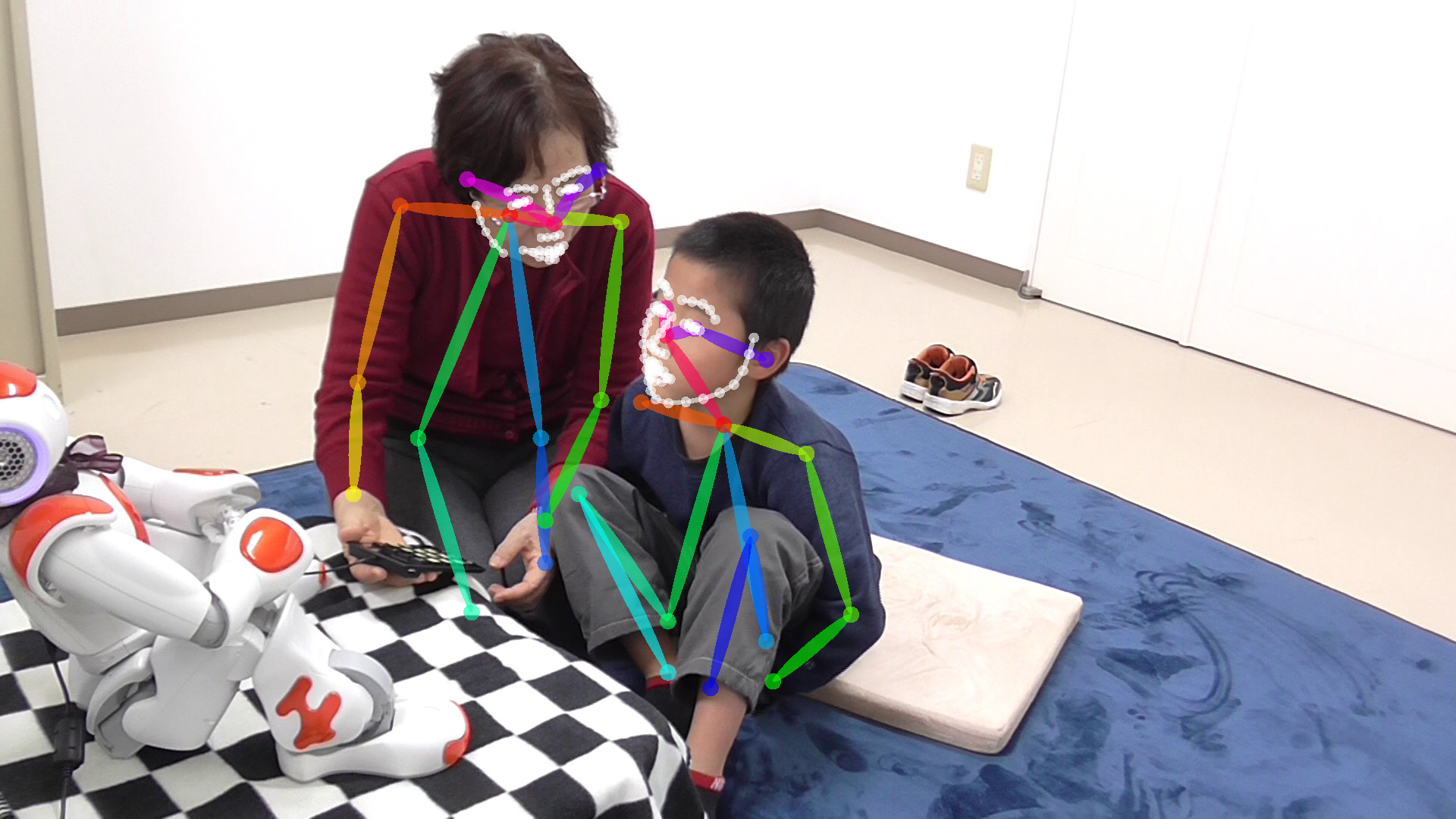
Personalized “deep learning” equips robots for autism therapy MIT
Controls, Instrumentation and Robotics. The CIR area is based on strong core disciplinary competencies in dynamic systems and control, supplemented by knowledge of a diverse array of topics, including mechanical design, manufacturing, electronics, materials, and biology. Research Includes: Novel actuator and sensor technology, biorobotics and.

Repairs to a robot insect at MIT robotics lab Stock Image T250/0184
Running, jumping, turning, flipping: our research is pushing the boundary of what's possible with legged robotics. Refine Results
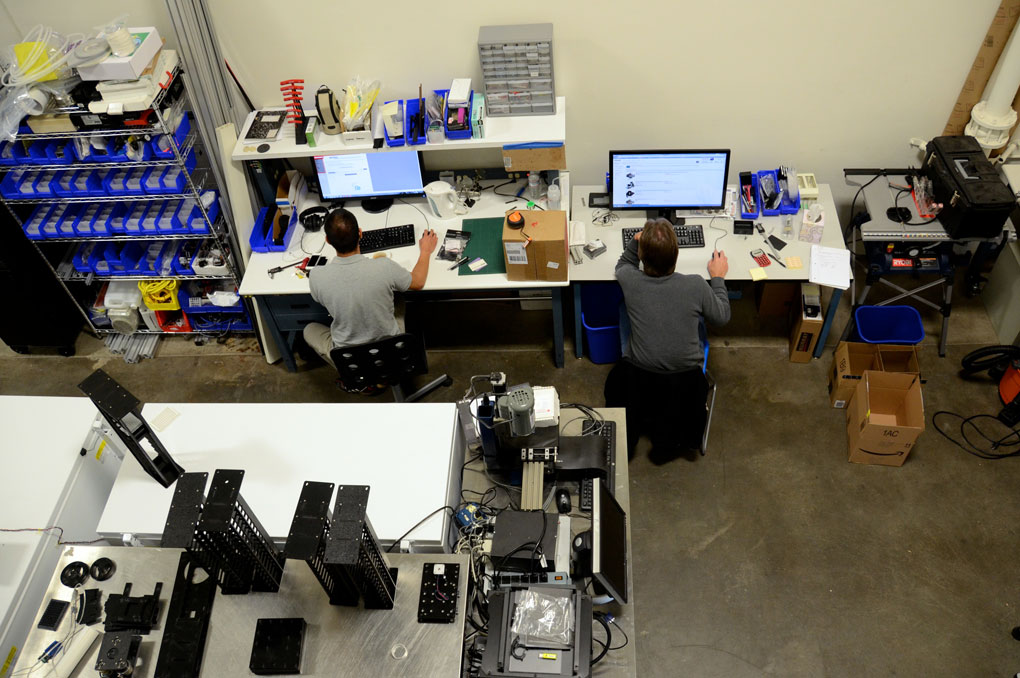
Climateer Investing Inside the secret robot lab that's shaking up science
The Biomimetic Robotics Laboratory at MIT focuses on designing and controlling robots using insights taken from the natural world. Many animals can display incredible feats of speed and agility that are sources of inspiration for the robots designed by the group. We're always open to new members who will fit in well with the group!
Advanced robotics and AI produces groundbreaking results in new
The MCube Lab strives to provide an open, inclusive, and supportive environment for students with diverse backgrounds and ideas. We place a high value on community and believe robotics research is an interdisciplinary and collaborative endeavor. Our lab members cooperate and share their expertise to help each other grow as researchers and.

Robotics research, MIT AI Lab Stock Image T250/0549 Science Photo
Biomimetic Robotics Lab Featured?: Research Area: Design and Manufacturing Controls, Instrumentation and Robotics Website URL: http://biomimetics.mit.edu MIT's Department of Mechanical Engineering (MechE) offers a world-class education that combines thorough analysis with hands-on discovery.
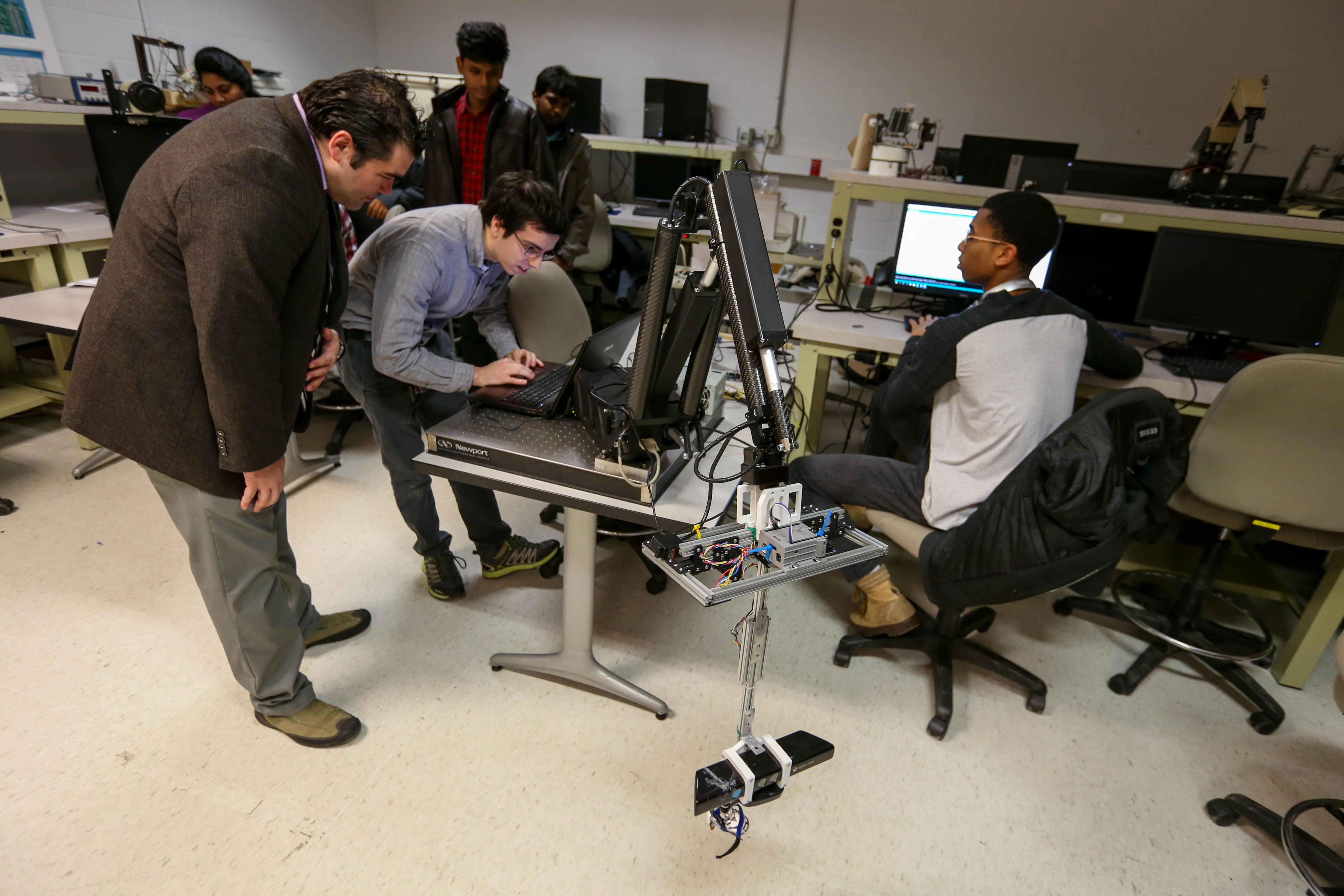
New Robotics Program at the University of Hartford University of Hartford
Distributed Robotics Laboratory We aim to develop the science of autonomy toward a future with robots and AI systems integrated into everyday life, supporting people with cognitive and physical tasks.

Robotics Lab School of Engineering
MIT's HiP system helps robots complete long-horizon goals using three foundation models: a large language model, a video diffusion model, and an egocentric action model. Iterative refinement improves the plan at each step for household and manufacturing tasks.. MIT's Improbable AI Lab, a group within the Computer Science and Artificial.
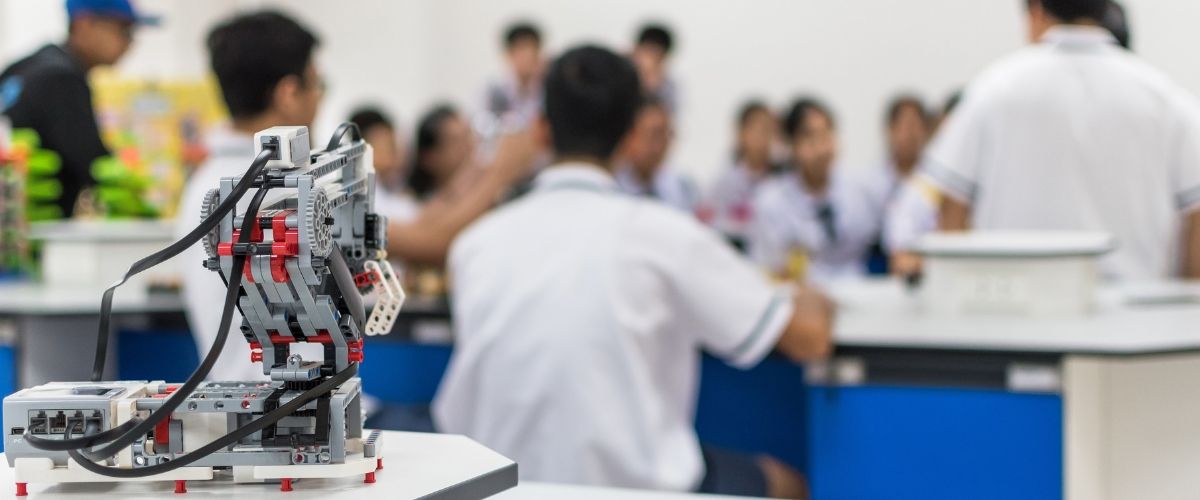
Guide to making your own robotics lab
Room. 32-380B. Russ is the Toyota Professor of Electrical Engineering and Computer Science , Aeronautics and Astronautics, and Mechanical Engineering at MIT, the Director of the Center for Robotics at the Computer Science and Artificial Intelligence Lab, and the leader of Team MIT's entry in the DARPA Robotics Challenge.

At MIT’s new computing college, a robot does backflips to celebrate
As a lab group, we strive to develop the technologies and hardware needed to enable humans and robots to work together. By taking inspiration from both biological designs and the practical challenges faced by modern industry, we work to solve socially and economically challenging problems. Automation Healthcare Education Recent Research Projects

MIT develops a system that lets operators control robots with their
Research — MIT Media Lab We are an interdisciplinary research lab working to invent the future of art health artificial intelligence human-machine interaction learning + teaching robotics design technology architecture consumer electronics music kids human-computer interaction wearable computing bioengineering politics data sensors machine learning

Robot insect at MIT robotics lab Stock Image T250/0215 Science
The lab develops the algorithmic foundations of robotics through the innovative design, rigorous analysis, and real-world testing of algorithms for single and multi-robot systems.

Raytheon Mentoring Program Southern University and A&M College
Introduces the fundamental algorithmic approaches for creating robot systems that can autonomously manipulate physical objects in unstructured environments such as homes and restaurants. Topics include perception (including approaches based on deep learning and approaches based on 3D geometry), planning (robot kinematics and trajectory generation, collision-free motion planning, task-and.
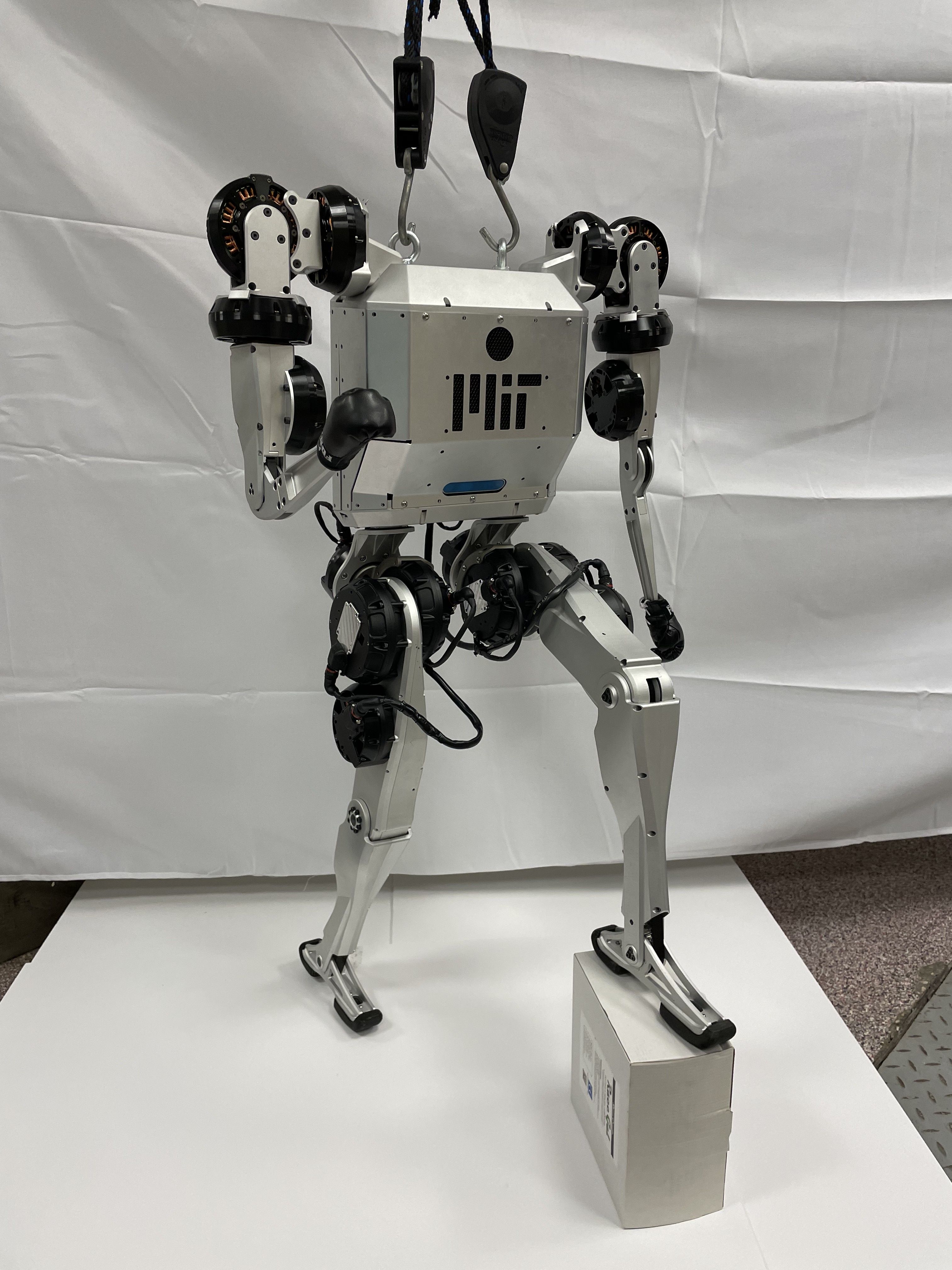
mit humanoid
Our Mission. To research, develop, manufacture, and deploy appropriate robotic technologies for restoring, maintaining, and augmenting human neuro-motor performance. To deploy these technologies in hospitals, rehabilitation hospitals, community health-care centers, home health-care, home, as well as minimizing work related injuries.

Robotics, AI and Machine learning The Hub For Findings
Welcome to the Interactive Robotics Group! In everyday settings, from factories to hospitals, it is increasingly common to see robots working alongside people. But because robots lack the intelligence to accommodate their more dynamic human partners, robots and humans work independently.
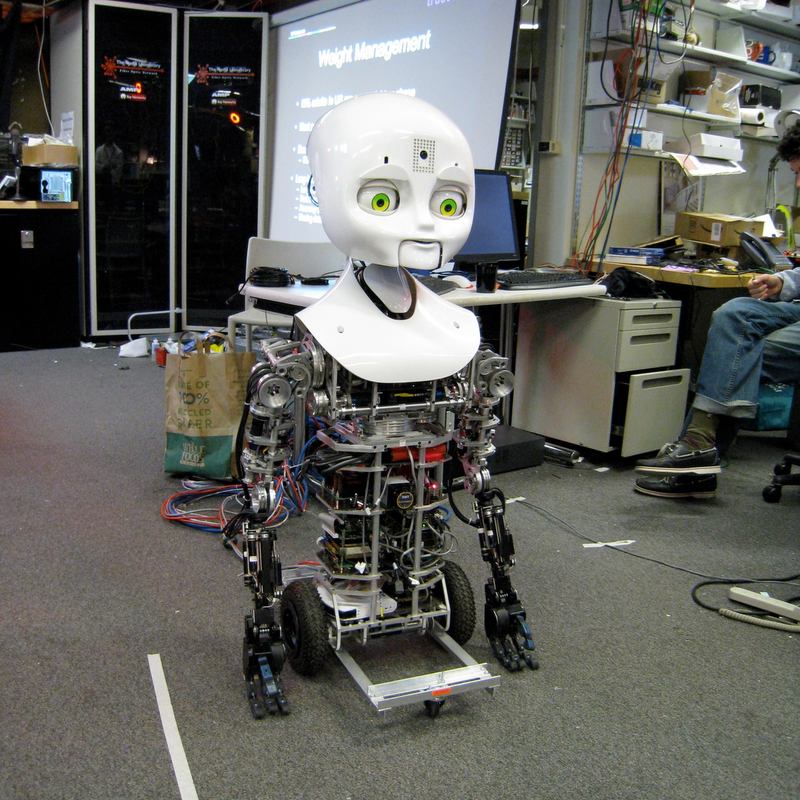
25 Years of the MIT Media Lab The Takeaway WQXR
Our research brings together ideas from motion and task planning, machine learning, reinforcement learning, and computer vision to synthesize robot systems that are capable of behaving intelligently across a wide range of problem domains.

Robotics Lab Campus Planning & Operations Laboratory design
Research Explore all research areas Robotics Faculty Latest news in robotics Upcoming events Our research focuses on robotic hardware and algorithms, from sensing to control to perception to manipulation. Faculty Latest news in robotics More news December 18, 2023 EECS Alliance Roundup: 2023